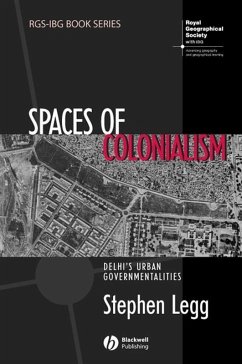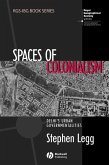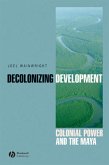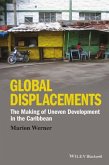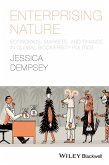Examines the residential, policed, and infrastructural landscapes of New and Old Delhi under British Rule. * The first book of its kind to present a comparative history of New and Old Delhi * Draws on the governmentality theories and methodologies presented in Michel Foucault's lecture courses * Looks at problems of social and racial segregation, the policing of the cities, and biopolitical needs in urban settings * Undertakes a critique of colonial governmentality on the basis of the lived spaces of everyday life
Dieser Download kann aus rechtlichen Gründen nur mit Rechnungsadresse in A, B, BG, CY, CZ, D, DK, EW, E, FIN, F, GR, HR, H, IRL, I, LT, L, LR, M, NL, PL, P, R, S, SLO, SK ausgeliefert werden.
"Profound." (Progress in Human Geography, February2010)
"The breadth of scholarship is impressive, and anyonewishing to learn about colonial Delhi will find this book avaluable source. What Legg ultimately delivers is a critique ofliberal government, showing how colonial power works in illiberalways to assert the domination of the British over the nativepopulation." (American Journal of Sociology, July2009)
"The main strength of this book is its conceptual rigour. Leggdraws on Foucault's recently translated 1978 lecture series... The book provides a detailed, theoretically informed analysisof three landscapes of ordering in Delhi, Old and New ... Spaces ofcolonialism rewards persistence, and will be required reading forscholars of urban governmentality, and of considerable interest topost-colonial and urban geographers more generally." (Area,March 2009)
"Legg has mined and marshaled his written sources superbly andhis extrapolations of Foucault are lucid and provocative."(Planning Perspectives, January 2009)
"Legg uses these (Foucault's) well-tried concepts to extremelygood effect in interpreting some fascinating archival material ....[The book] also has new things to say about New Delhi and colonialurbanism generally." (Comparative Studies in Society andHistory, December 2008)
"Writers have long recognised that social rules are at a premiumin urban areas, and many discussions of governmentality have takencities as their subject. Spaces of Colonialism, a case studyof Delhi in the first half of the twentieth century that ispublished in the RGS-IBG book series, makes a significantcontribution to such debates." (Journal of HistoricalGeography)"A path-breaking analysis of colonial urban governmentality. Theauthor combines a deep knowledge of Foucauldian and (post-)colonialtheory with a careful interpretation of a wide range of archivaldata. The result is a stunning re-interpretation of the politics oflate colonial Indian urbanism."
-James S. Duncan, University of Cambridge
"Conceptually nuanced and empirically rich, this book is apowerful example of the insights a theoretically informed geographycan bring. It is an important and carefully researched work that islikely to have a significant impact in both governmentality andpost-colonial studies."
-Stuart Elden, Durham University
"The breadth of scholarship is impressive, and anyonewishing to learn about colonial Delhi will find this book avaluable source. What Legg ultimately delivers is a critique ofliberal government, showing how colonial power works in illiberalways to assert the domination of the British over the nativepopulation." (American Journal of Sociology, July2009)
"The main strength of this book is its conceptual rigour. Leggdraws on Foucault's recently translated 1978 lecture series... The book provides a detailed, theoretically informed analysisof three landscapes of ordering in Delhi, Old and New ... Spaces ofcolonialism rewards persistence, and will be required reading forscholars of urban governmentality, and of considerable interest topost-colonial and urban geographers more generally." (Area,March 2009)
"Legg has mined and marshaled his written sources superbly andhis extrapolations of Foucault are lucid and provocative."(Planning Perspectives, January 2009)
"Legg uses these (Foucault's) well-tried concepts to extremelygood effect in interpreting some fascinating archival material ....[The book] also has new things to say about New Delhi and colonialurbanism generally." (Comparative Studies in Society andHistory, December 2008)
"Writers have long recognised that social rules are at a premiumin urban areas, and many discussions of governmentality have takencities as their subject. Spaces of Colonialism, a case studyof Delhi in the first half of the twentieth century that ispublished in the RGS-IBG book series, makes a significantcontribution to such debates." (Journal of HistoricalGeography)"A path-breaking analysis of colonial urban governmentality. Theauthor combines a deep knowledge of Foucauldian and (post-)colonialtheory with a careful interpretation of a wide range of archivaldata. The result is a stunning re-interpretation of the politics oflate colonial Indian urbanism."
-James S. Duncan, University of Cambridge
"Conceptually nuanced and empirically rich, this book is apowerful example of the insights a theoretically informed geographycan bring. It is an important and carefully researched work that islikely to have a significant impact in both governmentality andpost-colonial studies."
-Stuart Elden, Durham University

